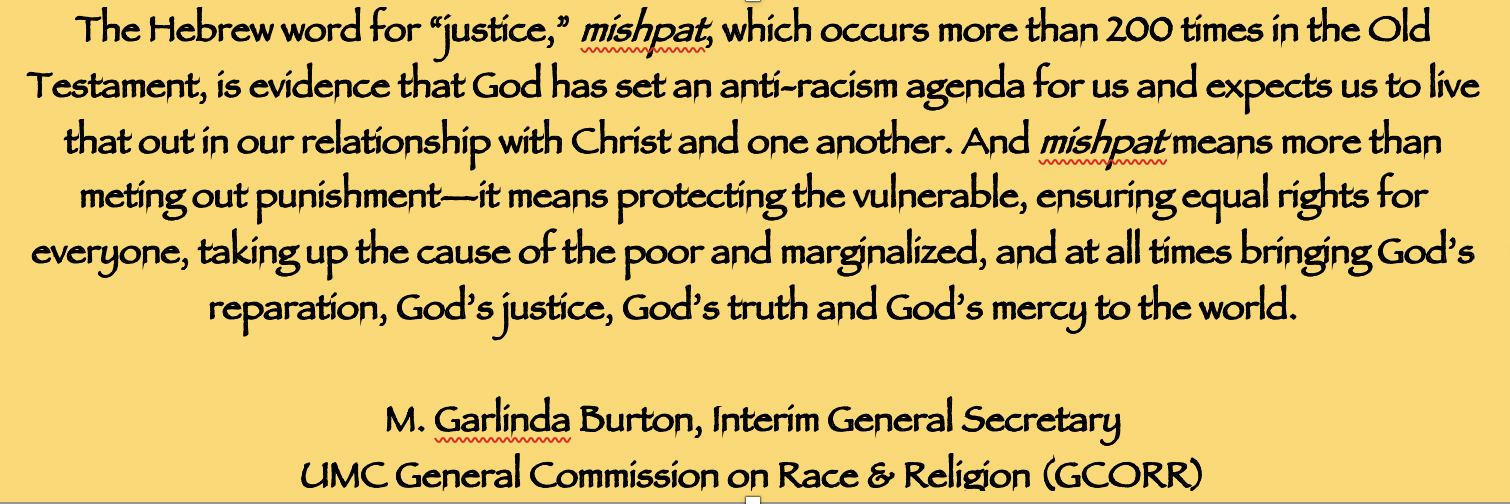Summer 2021: Doing Good
UMW Shows up for Soup Singing
On May 26, in continuing partnership with Minnesota Interfaith Power and Light (MNIPL), Minnesota Conference United Methodist Women (MNUMW) President Cindy Saufferer and MNUMW Nominations co-chair Shirley Durr attended a virtual Soup Singing to Stop Line 3.
Soup Singing is a ritual that connects people virtually and joyfully in their home kitchens to prepare soup and sing for Water. It is a grounding practice to co-create collective nourishment, honor Water and Indigenous treaty rights, connect with a growing community, and inspire courage to resist the Line 3 tar sands pipeline project.
The Soup Sing featured Taysha Martineau, Fond du Lac Band of Lake Superior Chippewa member, Anishinaabe water protector, and founder of Camp Migizi, one of the Line 3 resistance camps.
Minneapolis musician and song leader Sarina Partridge led attendees in learning “Nibi Song” by Doreen Day, a song in Ojibwe written and sung for the water, a song of healing and love inspired by a child.
After the Sing, there was talk led by Nancy Beaulieu (citizen and resident of Leech Lake) who is a MN 350 Climate Justice Organizer. She talked about how to show up in solidarity with Anishinaabe people exercising their treaty rights.
Beaulieu explained that stopping line 3 is “about our treaties” which are about relationships. Native peoples and settlers are “treaty partners,” she said. Honoring treaties gives us not only the right to occupy the land but also the obligation to live in peace and care for the land. Beaulieu believes that building Line 3 endangers biodiversity and sovereign lands and dishonors the treaties “your ancestors signed with my ancestors.”
Following Beaulieu’s talk, breakout rooms met to discuss what it means to be treaty people as a way of preparing for the Treaty People Gathering June 5-8 in northern Minnesota. Cindy and Shirley made plans to show up.
Following Beaulieu’s talk, breakout rooms met to discuss what it means to be treaty people as a way of preparing for the Treaty People Gathering June 5-8 in northern Minnesota. Cindy and Shirley made plans to show up.
Racial Justice Book Club: What to do after reading the book?
The first leg of our journey towards racial justice that began on January 12 with the first Zoom session of the Racial Justice Book Club (RJBC) ended with the last Zoom session on April 27 discussing the last chapters of How to Be an Anti-racist by Ibram X. Kendi.
The last session also included discussion about how to take the next step of putting what was learned into action. Tentative plans were discussed for meeting at George Floyd Square, 38th and Chicago, and sharing a meal together from a business in that neighborhood while processing their shared experience and brainstorming other actions to take towards racial justice. Others who did not take part in discussing the book are invited to join in this activity.
The last session also included discussion about how to take the next step of putting what was learned into action. Tentative plans were discussed for meeting at George Floyd Square, 38th and Chicago, and sharing a meal together from a business in that neighborhood while processing their shared experience and brainstorming other actions to take towards racial justice. Others who did not take part in discussing the book are invited to join in this activity.
Mary Ellen Reetz-Pegues, as well as others, admitted finding the Kendi book difficult at times but Mary Ellen is glad she read it. “I learned a lot,” she said, “but I don’t think I contributed much to the discussion.”
Despite this perception, Mary Ellen’s personal experiences with racism throughout her marriage and her willingness to question some of Kendi’s precepts were valuable contributions to small and large group discussions.
Pastor Steve expressed appreciation for the Racial Justice Book Club because it “gave us an opportunity to explore Ibram X. Kendi's book together.” He also “enjoyed connecting with folks both inside and outside of our Epworth community. Additionally, it gave me an opportunity to build a connection with Crixell and MN Peacebuilders.”
Epworth hopes to maintain that connection within the Book Club and beyond it.
If you want to be part of the George Floyd Square visit or if you want to help choose what the RJBC reads for the next leg of this long journey, email with your book suggestions and let us know if you are interested in taking part in other RJBC events.















Comments
Post a Comment